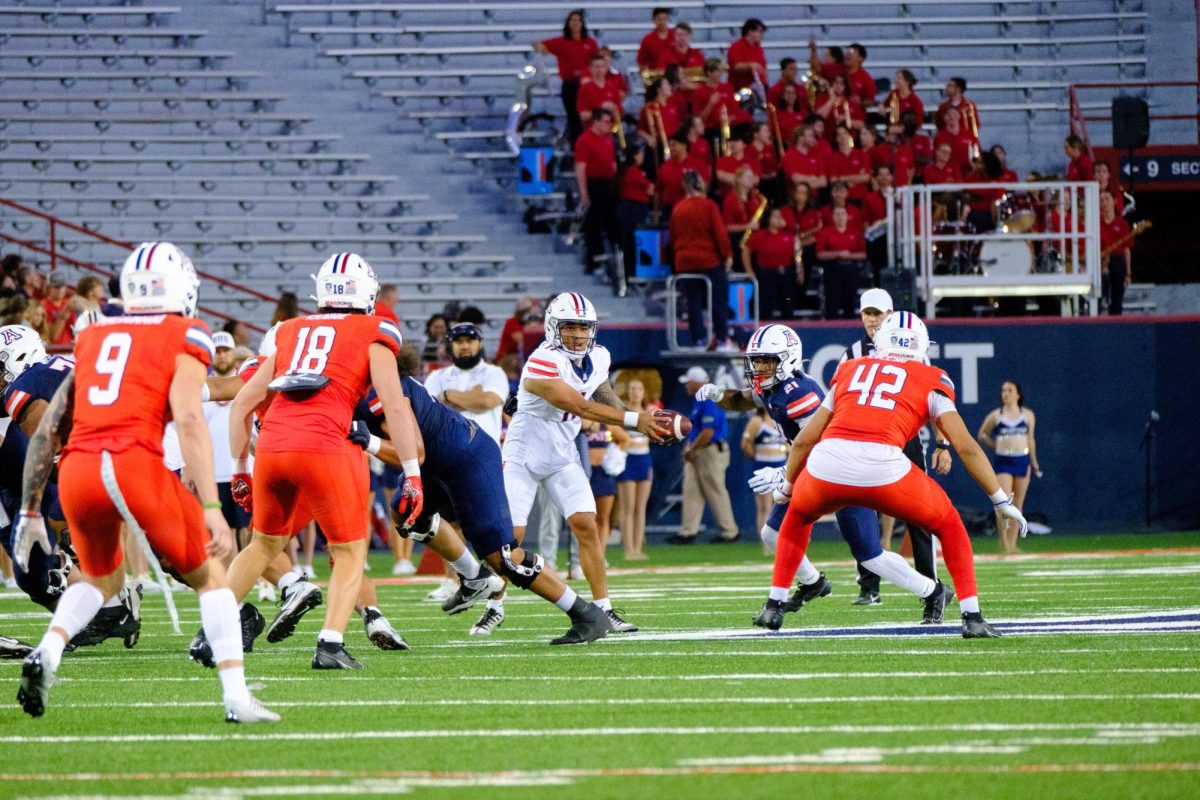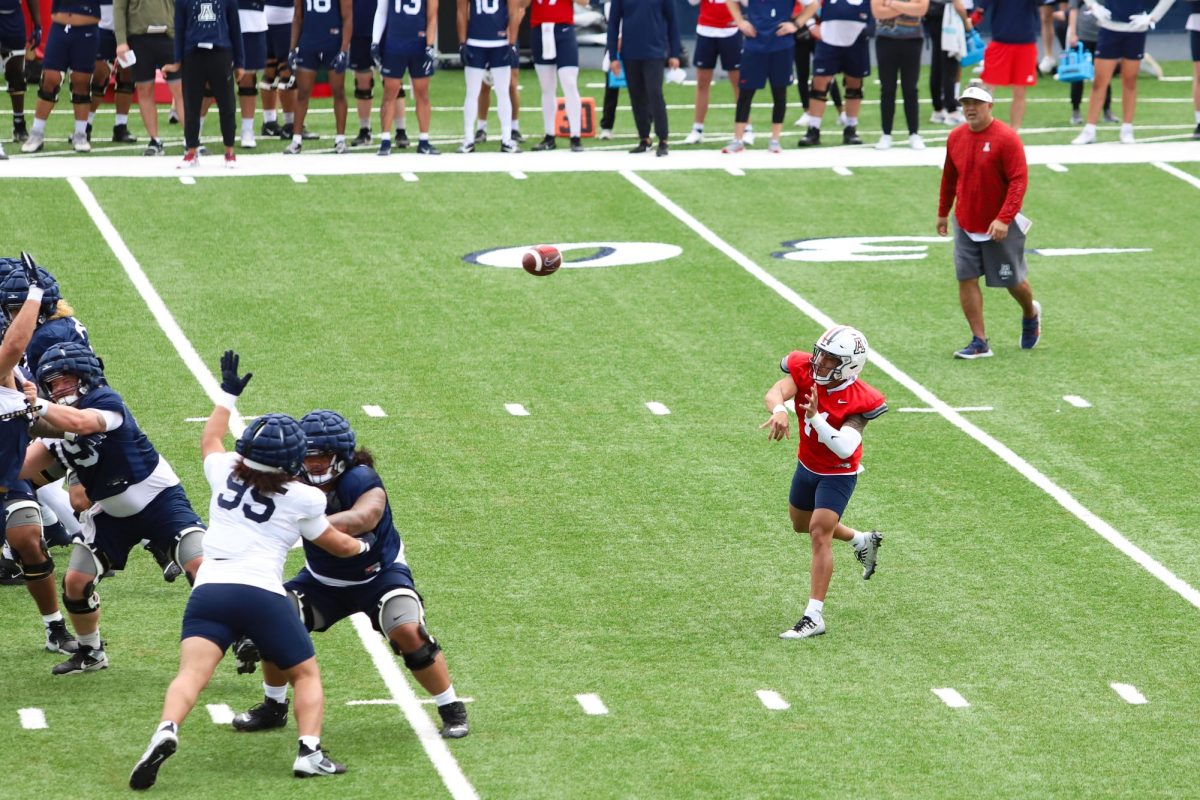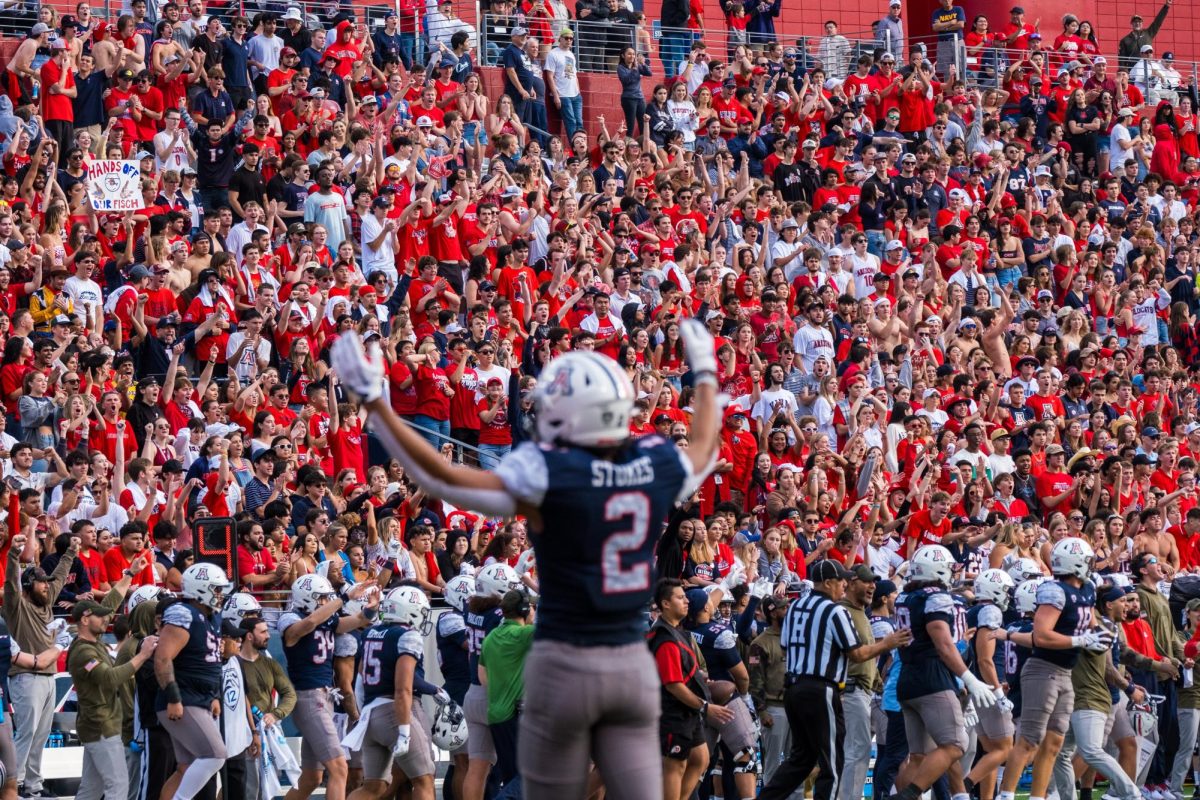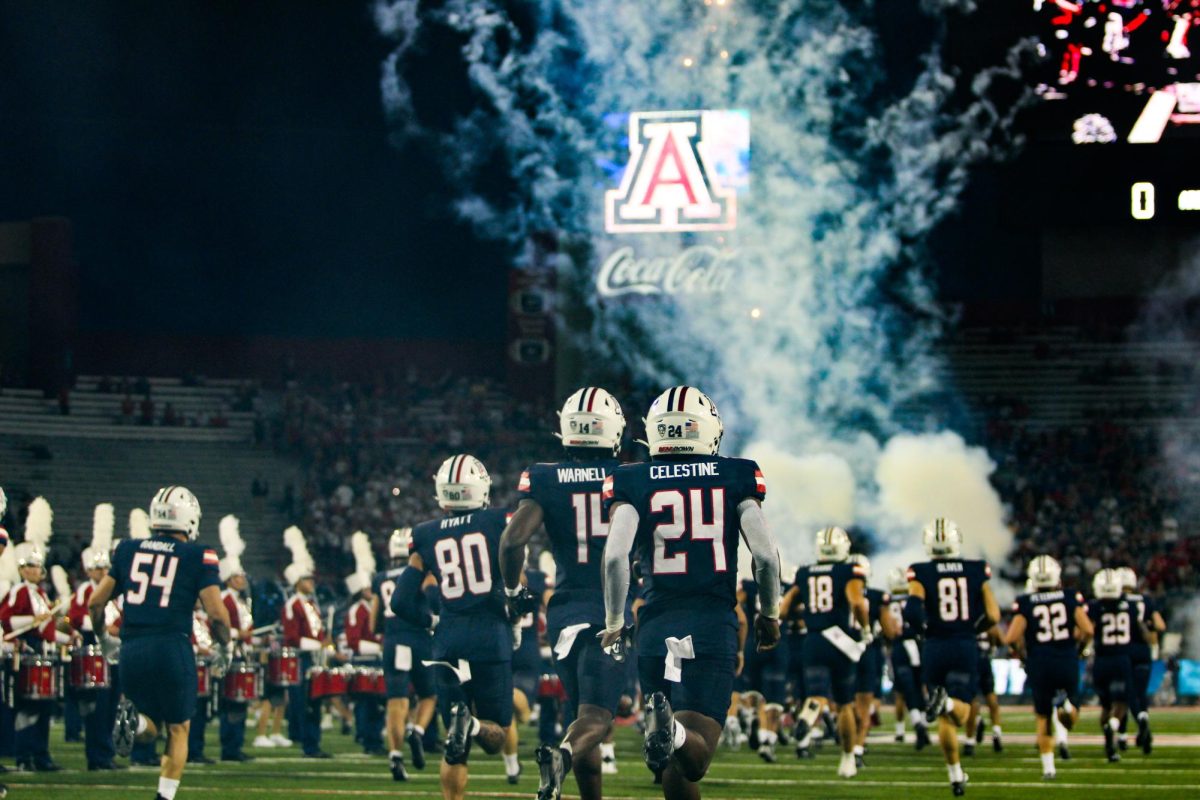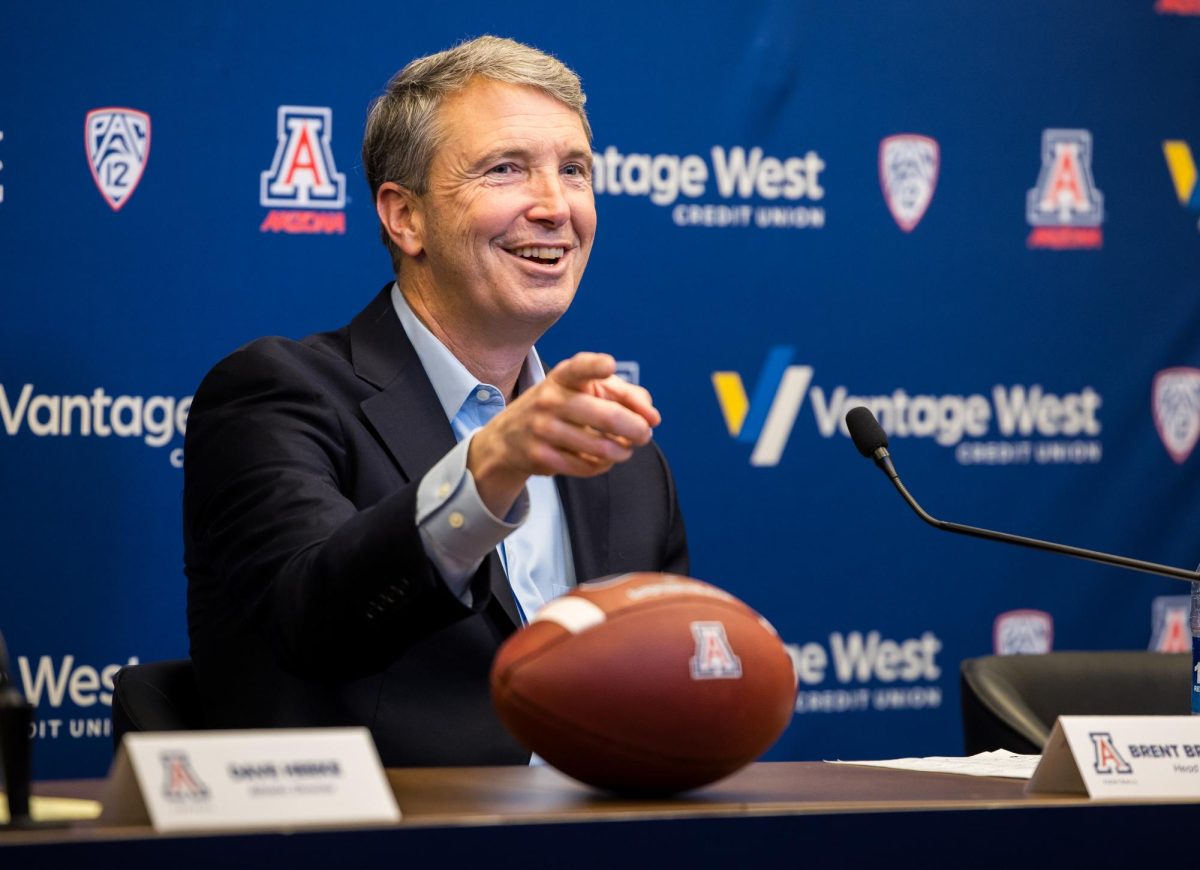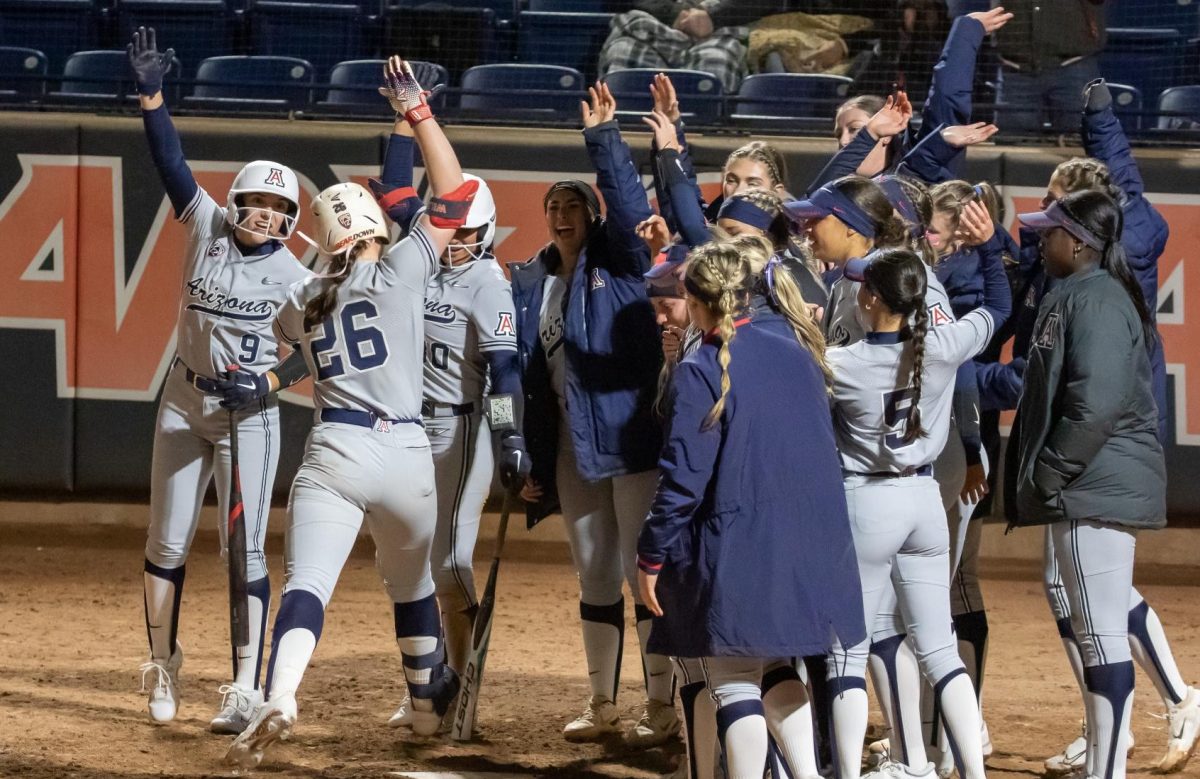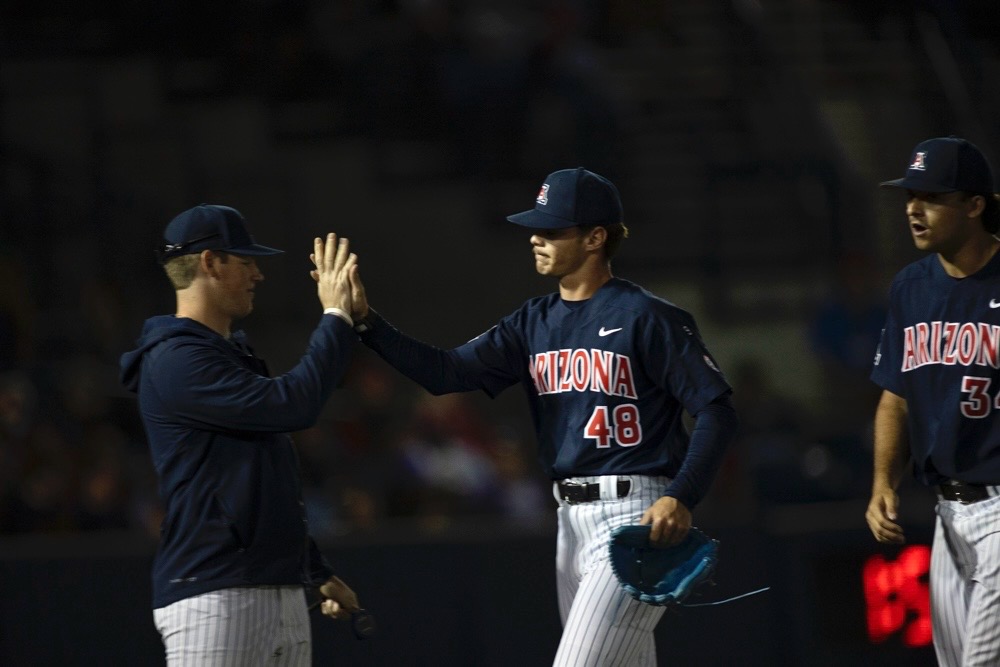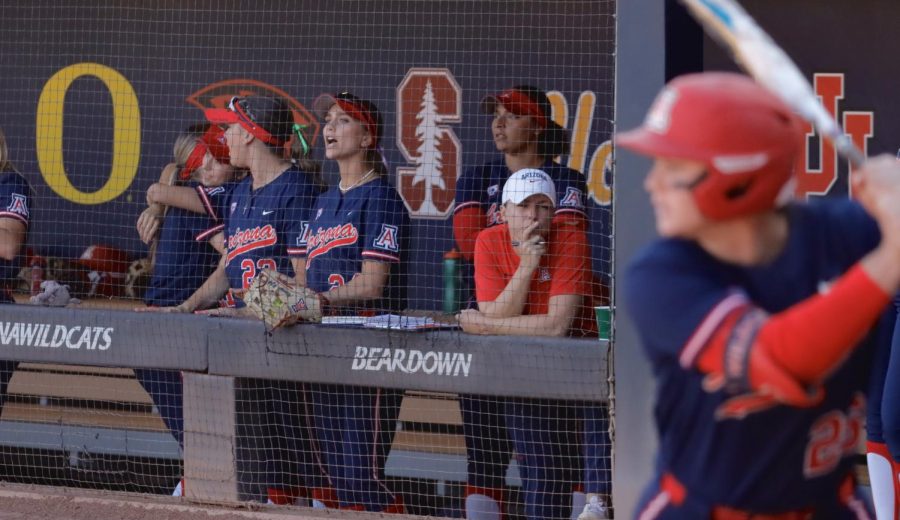After failing for three years as Michigan’s head honcho, Rich Rodriguez was chased out of Ann Arbor.
He lost the passionate Wolverine fan base, leading analysts to believe he was the wrong fit from the start. Others said he wasn’t a “Michigan Man” and didn’t understand what the school was about.
Rodriguez couldn’t disagree more.
“There were some misconceptions that I didn’t know the tradition there because I didn’t go there, but we embraced it from the start,” Rodriguez said.
That understanding of Michigan’s culture didn’t show in Rodriguez’s record, however, as he went 6-18 in the Big Ten during his three-year tenure. But despite his early struggles, Rodriguez claimed on Tuesday that he simply wasn’t given enough time.
“I thought that at the time when we got there after the first spring, it would take a little more than three years and we would slowly get better, and I thought that year four and year five we’d be lights out,” Rodriguez said. “It’s frustrating to watch them. I don’t mind telling you because those are all my guys.”
With Michigan now 9-2 and fresh off of a dominant win over Nebraska, the Wolverines are thriving off what Rodriguez constructed.
Quarterback Denard Robinson was Rodriguez’s guy. Running back Fitzgerald Toussaint was his recruit. Michigan is on the verge of making a solid bowl game, and Rodriguez never had a chance to fully develop his players for those fourth and fifth years.
“The most frustration I had was not having a chance to see it through,” he said. “It’s like you spend an hour making the best cake you could and put it in the oven, and two minutes before the bell rings you get to eat it, somebody’s eating your cake. Damn, that’s no fun. I want to make the cake and eat it.”
But Tucson is now Rodriguez’s new bakery, and he’s driven to make the best cake possible – and eat it too.
“I’m probably hungrier now than I’ve ever been as a coach,” he said.
Byrne did his research, NCAA issues resolved
One of Rodriguez’s biggest knocks was his lack of compliance. He violated NCAA rules for having too many coaches involved in offseason conditioning programs, staff meetings and film sessions.
He also had a messy departure from West Virginia where he was accused of shredding important documents related to the football program.
But Rodriguez admitted his faults and vowed to clean up his act.
“I assure you … that there will never be another one in the future,” Rodriguez said. “I know that those eyes are on, so to speak. That doesn’t daunt me here.”
If the coach’s word wasn’t enough, Byrne did all of the research possible to make sure there was nothing more behind Rodriguez’s violations.
“I really researched the Michigan situation,” Byrne said. “I read a number of books in this process.”
He read three books — including “Three and Out,” about Rodriguez’s failure at Michigan — to better understand the situation. He also met with the NCAA and talked to Michigan’s compliance officer. According to Byrne, Rodriguez checked out just fine.
Assistants wanted
Rodriguez said he hopes to have his new staff intact by Christmas, with certain hires coming as soon as next week. He’ll most likely take more time on a defensive coordinator, which is Arizona’s biggest need moving forward.
He wasn’t closed off to the thought of retaining a UA assistant or two, as he said “guys who I have not worked with before will probably have experience recruiting in this region.”
But for the most part, his staff will be new faces for the Wildcats.
“There’s three or four guys that are great coaches, that have been with me for quite some time,” Rodriguez said. “A couple of them have recruited out here. Both at West Virginia and Michigan from California and from Texas.”
Rodriguez will recruit full force in December and January and he’s confident he’ll have success in the West. Michigan has 11 players from either Arizona, California or Texas, and Rodriguez has charted those territories in the past.
“There are great football players in the state. I’ve recruited, I know,” he said. “I’ve recruited California, the state of Texas, the state of Louisiana and the state of Florida.”
He said his staff will reflect his need to recruit on the West Coast, but he made it clear that Arizona can be a national recruiting power as well.
“We’ll go anywhere in the country,” he said. “We have a good enough brand name to go anywhere in the country.”
A steal financially
If Rodriguez is as advertised, Arizona got a steal financially. On average, Rodriguez will make $1.61 million per year for five years, a salary less than Oregon’s Chip Kelly ($2.8 million), Cal’s Jeff Tedford ($2.3 million), Washington’s Steve Sarkisian ($2.25 million) and Utah’s Kyle Whittingham ($1.7 million).
Neither Stanford or USC lists their coaches’ salaries because they are private schools.
Mike Stoops made $1.47 million this past season, and assuming Rodriguez will have the Wildcats in at least the middle of the Pac-12, he’s a great value at that price.
Rodriguez’s base contract increases each year, as seen below:
Year 1: $1,450,000
Year 2: $1,500,000
Year 3: $1,600,000
Year 4: $1,700,000
Year 5: $1,800,000
He’ll receive $300,000 a year from Nike and IMG — the sports department’s marketing firm — and a handful of incentives tied to bowl game appearances, personal achievements, team academic achievements, season ticket sales, BCS rankings and the team’s Pac-12 accomplishments.




